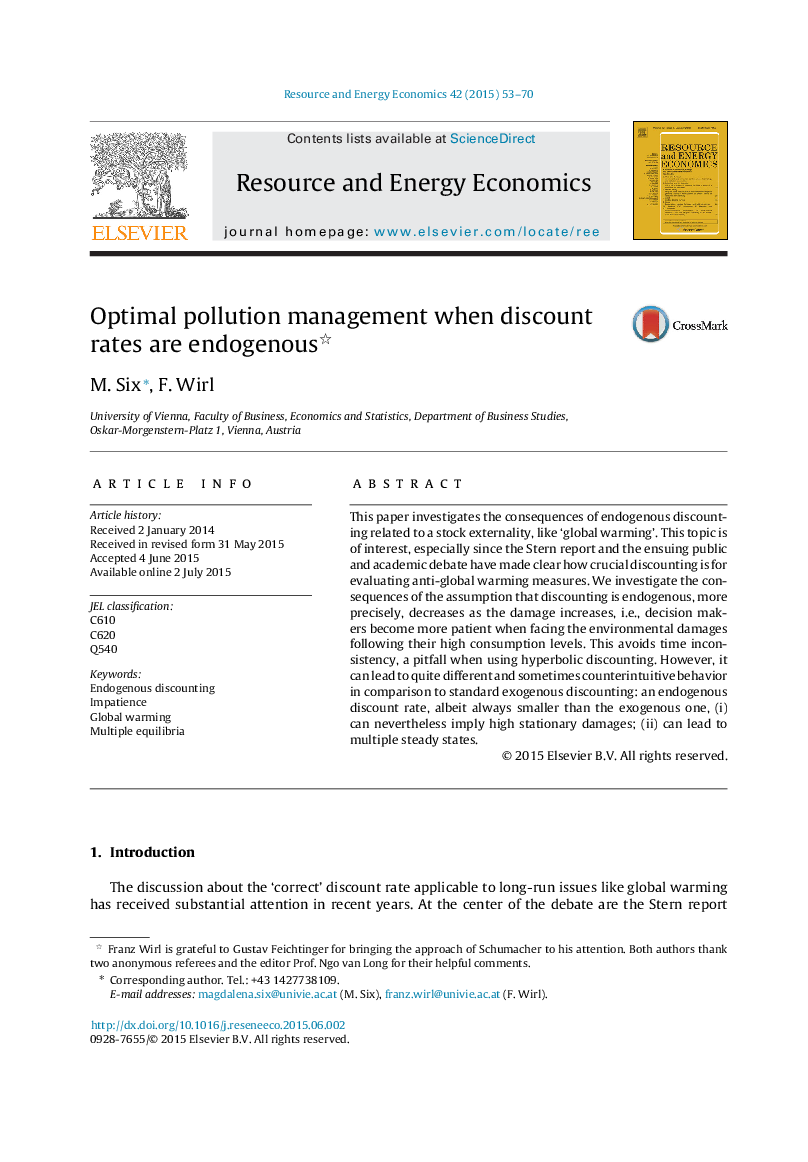| Article ID | Journal | Published Year | Pages | File Type |
|---|---|---|---|---|
| 7387488 | Resource and Energy Economics | 2015 | 18 Pages |
Abstract
This paper investigates the consequences of endogenous discounting related to a stock externality, like 'global warming'. This topic is of interest, especially since the Stern report and the ensuing public and academic debate have made clear how crucial discounting is for evaluating anti-global warming measures. We investigate the consequences of the assumption that discounting is endogenous, more precisely, decreases as the damage increases, i.e., decision makers become more patient when facing the environmental damages following their high consumption levels. This avoids time inconsistency, a pitfall when using hyperbolic discounting. However, it can lead to quite different and sometimes counterintuitive behavior in comparison to standard exogenous discounting: an endogenous discount rate, albeit always smaller than the exogenous one, (i) can nevertheless imply high stationary damages; (ii) can lead to multiple steady states.
Related Topics
Physical Sciences and Engineering
Energy
Energy (General)
Authors
M. Six, F. Wirl,
